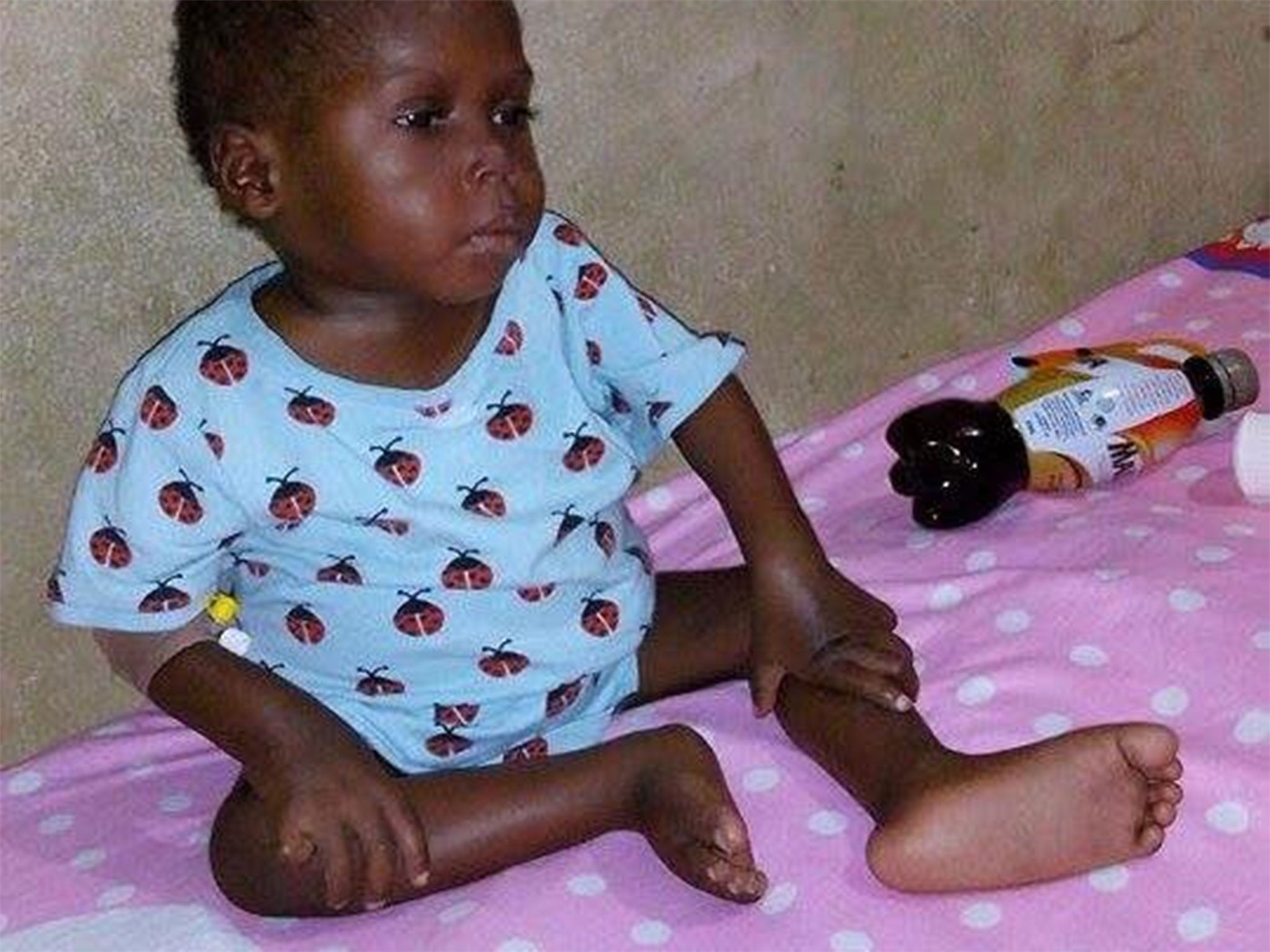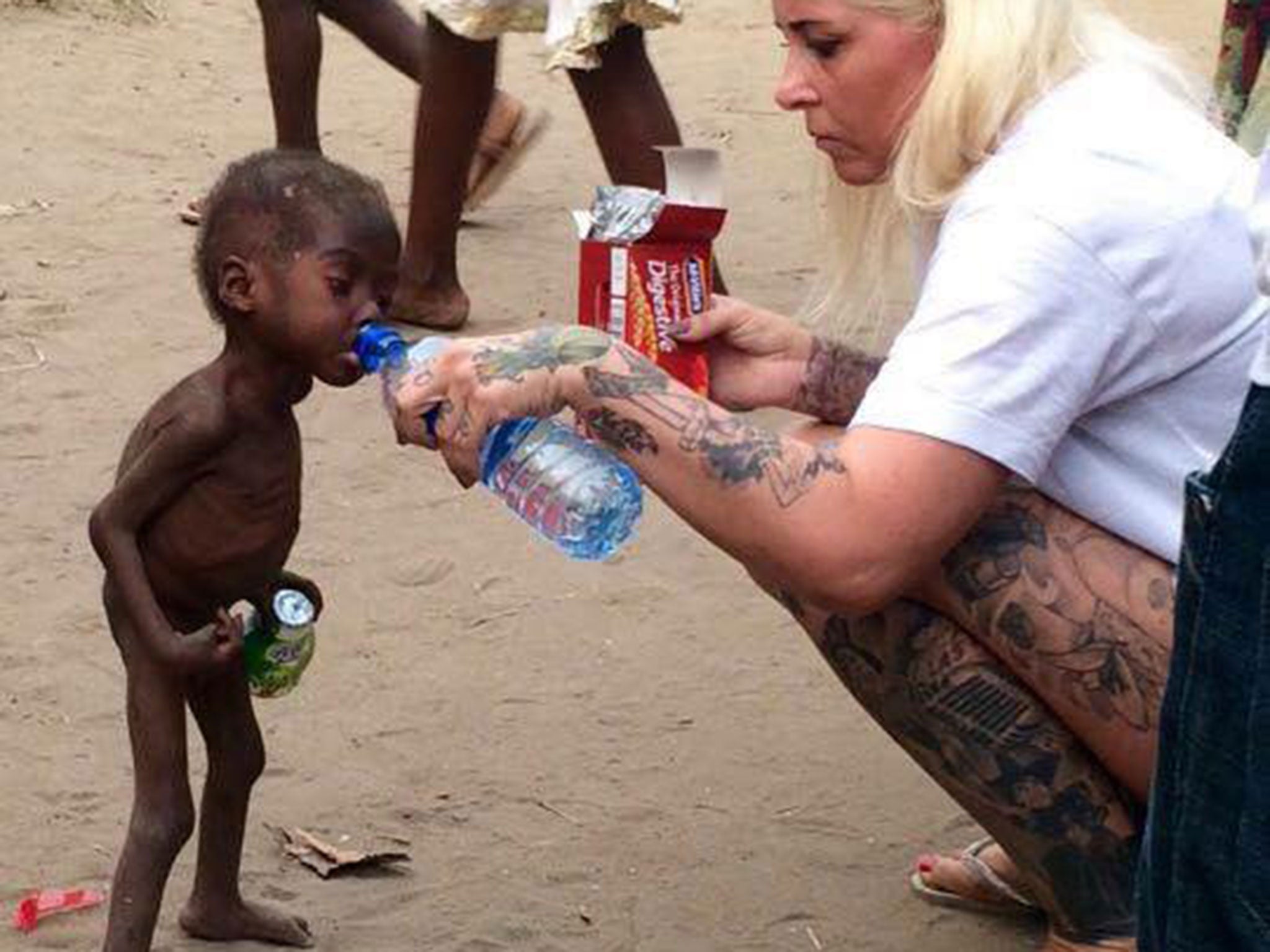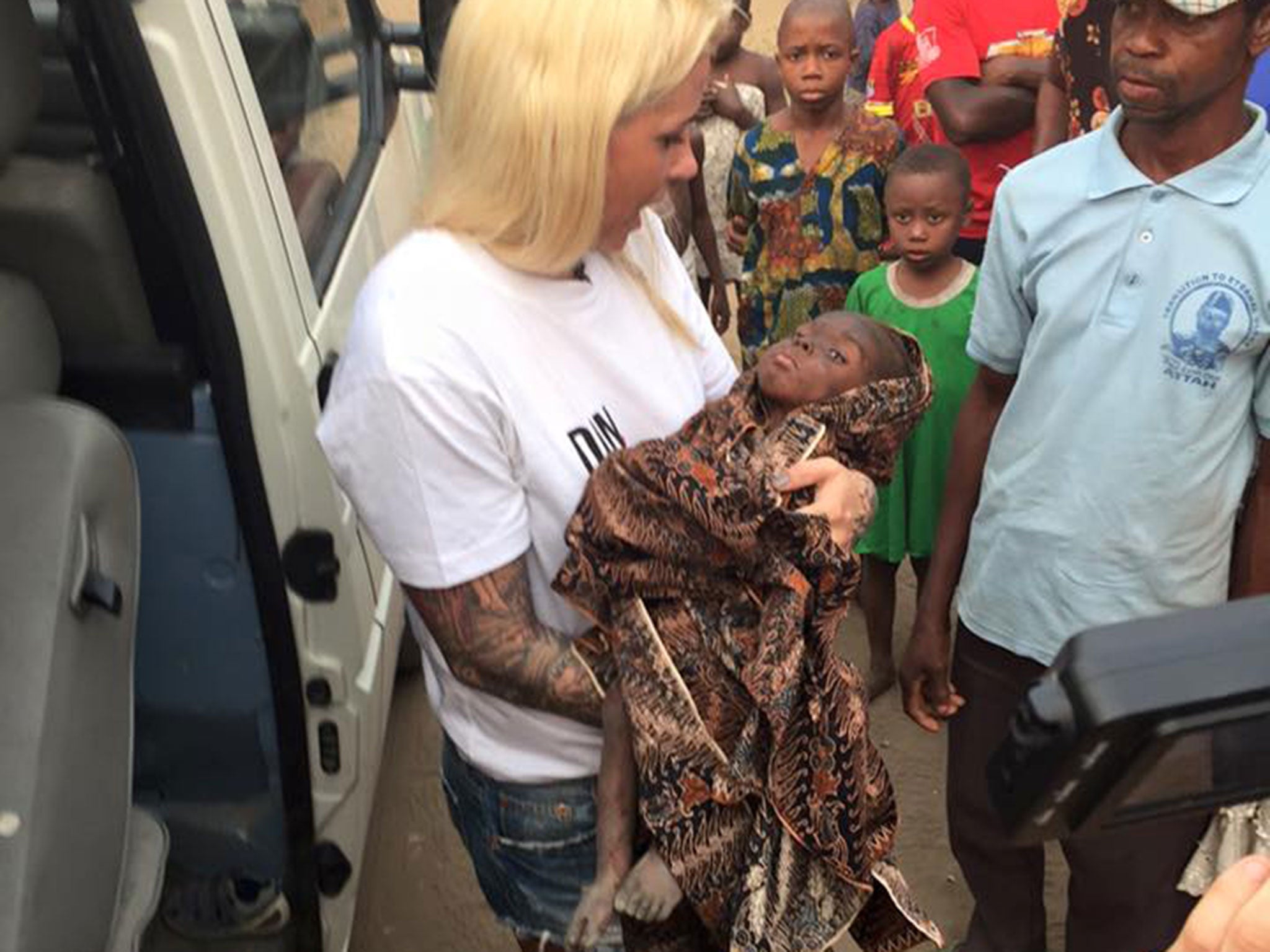Aid worker who rescued a boy from starvation reveals how she is working to save Nigeria's 'witch children'
Anja Ringgren Lovén was pictured offering water to a young boy who was abandoned by his family because of accusations of witchcraft

Your support helps us to tell the story
From reproductive rights to climate change to Big Tech, The Independent is on the ground when the story is developing. Whether it's investigating the financials of Elon Musk's pro-Trump PAC or producing our latest documentary, 'The A Word', which shines a light on the American women fighting for reproductive rights, we know how important it is to parse out the facts from the messaging.
At such a critical moment in US history, we need reporters on the ground. Your donation allows us to keep sending journalists to speak to both sides of the story.
The Independent is trusted by Americans across the entire political spectrum. And unlike many other quality news outlets, we choose not to lock Americans out of our reporting and analysis with paywalls. We believe quality journalism should be available to everyone, paid for by those who can afford it.
Your support makes all the difference.An aid worker whose rescue of an emaciated two-year-old boy made headlines around the world has spoken about how she gave up everything in Denmark to help “the witch children of Nigeria”.
Anja Ringgren Lovén was pictured offering water and biscuits to a small and very thin little boy called Hope, who had been abandoned by his family because of local superstitions about witchcraft.
Ms Lovén took Hope in, and he is now one of 34 children being cared for at the African Children’s Aid Education and Development Foundation (ACAEDF) which she founded with her husband David.


Since that first shocking image of Ms Lovén and Hope was shared around the world, raising more than $1 million in the process, she has posted an update to Facebook saying the boy is now doing well.
“Hope is getting so much better,” she wrote. “Already gaining a lot of weight and looking so much more healthy. Now we only need him to talk. But that will come naturally when he is out of the hospital and starting his life among all our children. Children become stronger together.”
Speaking in an interview with the Huffington Post, Ms Lovén said she first saw the problems created by superstition in rural Nigeria when she travelled there alone three years ago and met children “who had been tortured and beaten almost to death because they were accused of being witches and therefore left alone on the street”.
“What I saw was so barbaric and terrible and it left a deep impression on me,” she said.
“Being rejected by your own family must be the loneliest feeling a child can experience, and I don't believe that anyone can imagine how that must feel like.”
The reputation of ACAEDF has grown to the point where, when concerned members of the community saw Hope living on the street, they phoned Ms Lovén up to see if she could help.
She told Huff Po her team arranged a “rescue mission” immediately when they heard how young the child was – but the issue will not be solved in the long term unless there is better education “in the fight against superstition”.
“We rescue and we give love and support to the vulnerable children accused of witchcraft in Akwa Ibom. But to put an end to superstition, exorcism and black magic performed by pastors and the so-called witchdoctors, advocacy work must be carried out,” she said.
Join our commenting forum
Join thought-provoking conversations, follow other Independent readers and see their replies
Comments